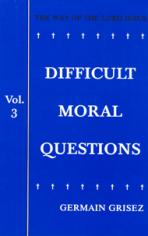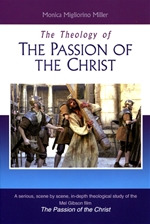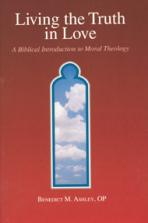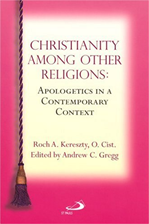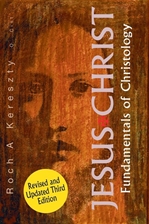Customer Reviews

DIFFICULT MORAL QUESTIONS, VOL. 3
Description
DIFFICULT MORAL QUESTIONS, VOL. 3
The Way of the Lord Jesus
Author: Germain Grisez, PhD
Like the other volumes in the series entitled The Way of the Lord Jesus, this one is intended primarily for use as a seminary text or instructional resource. But unlike the earlier volumes, which mainly present common Catholic teaching and reflect on it theologically, this volume deals with questions not yet the subject of explicit of clearly applicable Church teachings. Conscientious lay people facing challenging moral questions and those from whom they seek advice will find here guidance not available elsewhere: if not replies to their questions, a model for thinking about questions more or less like those they have. The 200 plus questions dealt with in this book really are difficult. Most of them are more difficult than it initially might seem. Quite often, the proposed reply qualifies or disagrees with something asserted or assumed by the questioner. The reader must be prepared to be challenged. The focus is always on trying to help a questioner form his or her own conscience and make good choices. Public opinion polls and the opinions of supposed experts are never treated as morally authoritative. Legalistic minimalism and impracticable idealism are avoided. Legitimate alternative ways of dealing with problems are often suggested. The motive of hope -- intending heaven and fearing hell -- regularly overarches and under girds every other motive proposed for living the truth of a well-formed conscience.
About the Author: Germain Grisez, PhD, is the Harry J. Flynn Professor of Christian Ethics (1978 - ) at Mount Saint Mary's College, Emmitsburg, Maryland. He received his B.A. at John Carroll University; his M.A. and Ph.L. from the Dominican College of St. Thomas Aquinas; and his Ph.D. from the University of Chicago. Along with philosopher John Finnis, who teaches as Oxford and Notre Dame, Grisez launched a new, theoretically sophisticated version of natural law theology, sometimes referred to as the "New Natural Law Theology".
Book: 959 pages, Hardbound
ISBN-10: 0-8189-1270-7
ISBN-13: 978-0-8189-1270-2
Prod. Code: 1270-7
Reviews
A while back many readers of Catholic publications probably saw a letter to the editor from moral theologian Germain Grisez soliciting questions on a variety of ethical issues. At the time, I thought, "He will certainly get some 'doozies'." Well, only a few of the 200 questions found in his new book Difficult Moral Questions can rightly be dubbed "doozies," but almost all of them are intriguing -- as of course are Grisez's answers. The book is useful on a number of levels. First, it provides sound answers to specific moral questions. Second, it restates the fundamental principles of Catholic morality. Third, it serves as a model of reliable moral reasoning in applying those principles to concrete situations and problems. In these ways, Difficult Moral Questions can be a valuable tool in the formation of both clergy and their lay collaborators. Grisez's answers... are orthodox and thoughtful -- though, as he himself concedes -- they are not infallible. Reasonable people might differ over the specifics of his advice in this case or that, even while agreeing wholly with the principles from which his conclusions are drawn. Likewise with Grisez's theories about "basic human goods" and the "modes of responsibility," which certainly undergird much of what he says (and which is well-summarized in the appendices), but which never lead him to conclusions contrary to the Church's magisterium. Most important, Grisez humbly declares that if his answers do lead in practice to judgments contrary to Church teaching, people should follow the Church, not his answers -- the antithesis of what we get from dissenting moral theologians today who either explicitly or implicitly invite people to agree with them over against the Church. In short, Grisez has contributed yet again to the Church's growing repertoire of contemporary yet wholly orthodox works of Catholic moral theology. --Mark Brumley, Managing Editor, Catholic Faith magazine, Vol. 5, No.2, April 1999
Grisez is arguably the premier Catholic moralist writing today and his ideas are always stimulating and richly deserve the attention paid to them. This third volume of The Way of the Lord is no exception. --Kevin L. Flannery, S.J. inGregorianum, Vol. 79, 1998
The issues explored in the case studies reflect the moral dilemmas encountered by lay members of the Church in the business of ordinary daily living: money, marriage, medical matters, deceitful use of computers, business dilemmas, practices of garages and maintenance mechanics, smoking, alcohol and drugs, legal and insurance practices, as well as religious, spiritual and prayer life are all brought under review. The method is exploratory, not legalistic, and the style of teaching is not dictatorial. --Francis P. McHugh of Von Hugel Institute, Cambridge in Theological Book Review, Vol. 10, No. 3, June 1998
"You can't tell people what to do about every little thing" probably would be the first thoughtless reaction to this work. But moral thinking and decision-making is more like a fine art than a response to impulses and personal opinions. No one develops a fine art without discipline and fine-tuning of a natural ability. Reading Grisez's book helps immensely to develop a habit of sound moral thinking and good practical judgment. Such a habit is needed and especially when the spirit of the times says, "Follow your conscience," and is not conducive to good moral health. --Mary Rosera Joycein St. Cloud Visitor, September 1997





